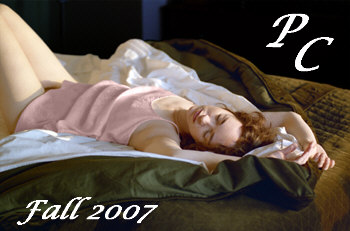

My father and his siblings, on the other hand, summed up Ole’s behavior in two words: mean drunk. Although he was never violent to anyone but his wives, and that always behind closed doors. And what hurt my father the most about Ole stealing their TV repair money was not the act itself. Since he didn’t hold money in high regard, my father felt sorry for anyone who succumbed to the pathetic temptation to get their hands on more. What hurt was that if Ole had ever said he needed money, my father would have emptied the till into his hands, no questions asked.
When my father picked me up at the bus station on this visit, I told him right off that I was sorry about what happened to Ole. He tightened his lips and shook his head, not taking his eyes off the road. “Whatever he did, he didn’t deserve that.” I hadn’t thought about our visit to Ole’s trailer for years. I remembered how happy the two cousins were to see each other, the bright five-year-old-boy grins grimace-like on those oddly matching hard faces. “Well, look who’s here.” My father unloaded a case of beer from the back seat and a bag of groceries. Ole growled and waved it away, my dad growled and waved it into the trailer, where we all sat at a small built-in table in the little windowed dining nook.
“This is my oldest girl,” my Dad had said. Ole gazed at me shyly, adoringly. There was a bottle of cheap no-name cola waiting on the table—for me—and I realized that my father had called ahead to arrange this visit.
“I bet she’s good in school,” Ole offered. “Smart like her mother.”
“Too smart for her own good,” my father answered, pretending to glare at me.
“But she’s a good girl.”
“Good for nothing.”
They drank beer, I drank the flat soda, we ate the canned chili my dad had brought, and it was clear that he had been coming to this trailer to see his cousin all these years, not often, but not infrequently. “Your mother doesn’t need to know about this,” he had said on our way back home. I had tried my best to look insulted.
“Had you seen him recently?” I asked.
“Who?” My father looked at me, startled.
“Ole. Did you still go out to see him?”
My father’s eyes went back to the road. “Not since they got back together. I should have.”
My father didn’t go to Ole’s funeral, and he didn’t go to the trial. His sisters went, sitting through the entire two days, silent witnesses who carried all those years of shared history with the man whose presence in the courtroom had shrunk to the moment and manner of his horrifying death, framed by a litany of spousal abuse. There was a complication: the woman’s grown son, Ole’s stepson, had been in the trailer that morning when Ole was killed; in fact, the shotgun belonged to him. According to my aunts, it was obvious to everyone that the son had pulled the trigger. But the mother insisted that she had done it, and she had her sad story of broken arms and noses and hospital visits. While my aunts had a certain amount of sympathy for her, they were amazed that, in the course of the two days, no one ever asked what they considered to be the burning question: “Why did you go back and marry him again if the first go around had been so bad?” That’s all they really wanted to know, and so they came out of the proceedings feeling cheated.
It didn’t seem right to them that the wife whom Ole had married twice was charged with manslaughter and sentenced to only 10 months in prison (and would probably get out earlier on parole), but when I asked what they thought she should have gotten, they had no recommendations. “She didn’t even do it, she was just protecting her son,” my one aunt sighed. The other aunt less charitably thought that mother and son had cooked up the idea together. Neither of them had any trouble understanding why Ole’s stepson would hate him so much, although shooting a man when he was asleep struck them as cowardly and cancelled out their inclination to admire him for coming to his mother’s rescue. Not that either of them would have used that word. As far as the aunts were concerned, the woman had placed herself beyond victimization or rescue when she went back to Ole. “If she left him once, she could have left him again,” said the charitable aunt.
This didn’t quite satisfy her sister. “If you put your hand on a hot stove once ….” She made a “hsst” through her teeth, pantomiming the touching, the swift recoil of the injured palm, but couldn’t think of a way to finish her analogy. We all looked at the space where this phantom stove sat, dangerously hot, but no one could think of a good way to finish it.

Per Contra: The International Journal of the Arts, Literature and Ideas
Cousins TV Repair and Antenna By Lorna Smedman
Page 2